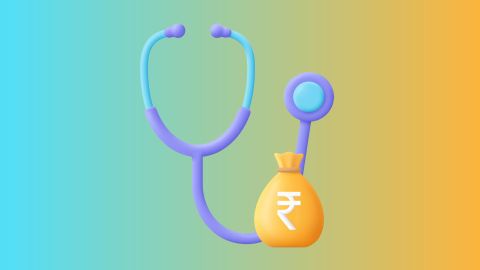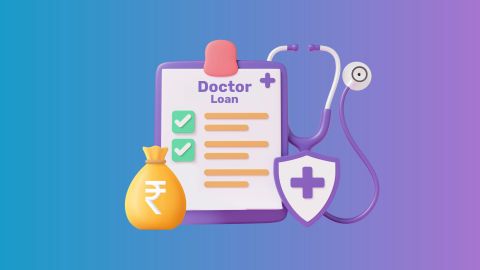An electrocardiogram (ECG) machine is an essential medical device used to record the heart’s electrical signals and identify issues such as rhythm abnormalities, heart attacks, and other cardiac problems. This guide explains how ECG machines function, the different types available, their uses, advantages, and core components. It also outlines what patients can expect during an ECG test, along with important details on pricing, maintenance, and factors to consider before purchasing. This helps healthcare professionals and readers make informed decisions when selecting and operating ECG machines.
What is an ECG machine?
An Electrocardiogram (ECG or EKG) is a quick and essential diagnostic test that records the heart’s electrical activity to evaluate how well it is functioning. It helps identify urgent conditions like heart attacks (myocardial infarction) and long-standing rhythm problems known as arrhythmias.
ECG machines are widely used across India in clinics, hospitals, operating rooms, and emergency ambulances. Today, some smartwatches can also capture basic ECG readings, offering limited personal monitoring. Patients should always check with their doctor to understand whether these consumer devices are suitable for their individual health requirements.
Types of ECG machines
For ongoing or periodic heart monitoring outside a clinical environment, specialised portable ECG devices are often used:
- Holter Monitor: A lightweight, wearable device that continuously records heart activity over 24 to 48 hours.
- Implantable Loop Recorder: A small device inserted under the skin to track heart rhythms over months or even years.
Objective of an Electrocardiogram (ECG)
The main purpose of an Electrocardiogram is to closely analyse the heart’s electrical patterns and rhythm. The findings reveal whether the heart is beating too fast, too slow, or irregularly, and they help the medical team diagnose several conditions, such as:
- Arrhythmias: Detecting abnormal or irregular heartbeat patterns.
- Previous Heart Attacks: Identifying signs of an earlier myocardial infarction.
- Causes of Chest Pain: Helping determine whether chest discomfort is related to blocked or narrowed coronary arteries.
- Treatment Monitoring: Evaluating how well cardiac devices like pacemakers are functioning and checking the effectiveness of ongoing heart medications or therapies.
Components of ECG Machine
An ECG machine comprises several essential parts that work together to record and interpret the heart’s electrical activity.
- Electrodes:
Small metal discs placed on the patient’s skin to detect the electrical signals generated by the heart. - Lead wires:
Thin cables that connect the electrodes to the ECG machine, transmitting the heart’s electrical signals for analysis. - Amplifier:
A vital component that strengthens the weak electrical signals from the heart so they can be accurately recorded and interpreted. - Display unit:
Shows the amplified electrical signals as waveforms on a monitor, allowing healthcare professionals to assess the heart’s function in real time. - Printer:
Generates a printed record of the ECG waveform, commonly referred to as an ECG reading, which can be reviewed immediately or stored for patient documentation.
What is an ECG machine used for?
An ECG machine is primarily used to:
- Evaluate heart function to identify normal rhythm or detect irregularities such as extra or missed heartbeats (cardiac arrhythmias).
- Indicate signs of acute or past heart muscle damage (myocardial infarction) or reduced blood flow to the heart (angina).
- Assist in identifying electrolyte imbalances, including abnormalities in potassium, calcium, or magnesium levels.
- Detect conduction disorders such as heart blocks and bundle branch blocks.
- Serves as a diagnostic tool for ischaemic heart diseases during exercise tolerance tests (ETT).
- Provide insights into the structural condition of the heart, such as left ventricular hypertrophy or mitral stenosis.
- Reveal signs of non-cardiac conditions like pulmonary embolism or hypothermia.
Benefits of ECG machine
There are several benefits of using an ECG machine in clinical practice:
- Non-invasive procedure: No surgery or invasive procedure is needed.
- Quick diagnosis: Provides immediate results, allowing for rapid intervention.
- Cost-effective: A basic ECG is relatively low cost, making it accessible to many.
- Easy to use: Minimal training is required for healthcare staff to operate.
- Versatile: Suitable for a wide range of applications, from routine checkups to emergency diagnostics.
How does an ECG machine work?
The working of an ECG machine involves the following steps:
- Electrode placement: Electrodes are placed on the patient's chest, arms, and legs.
- Signal detection: The machine detects electrical signals generated by the heart.
- Signal amplification: These signals are amplified to be easily readable.
- Graphical output: The machine plots these signals as a graph on paper or a screen.
- Diagnosis: Doctors interpret these graphs to identify any irregularities in heart function.
Risks of Electrocardiogram (ECG)
The Electrocardiogram procedure is completely safe and does not pose any risk of electric shock. The electrodes used during the test only detect and record the heart’s natural electrical signals. They do not emit electricity.
Minor and uncommon side effects may include:
- A mild skin irritation in the areas where the adhesive electrodes were placed.
- Slight discomfort when the patches are removed, similar to peeling off a regular bandage.
What to expect from an ECG
Here is what you can expect at each stage of the procedure:
Before the test
An ECG is a routine, non-invasive test performed in clinics, hospitals, and emergency vehicles across India. Before the procedure, you may be asked to change into a hospital gown. To ensure good electrode contact, small areas of chest hair may be shaved. You will then be asked to lie comfortably on an examination table.
During the test
During the ECG, up to 12 adhesive electrodes are placed on your chest and sometimes on your limbs. These are connected to the ECG machine, which records the heart’s electrical activity as waveforms. You will need to stay still and avoid talking, since movement can interfere with the recording. You may continue to breathe normally throughout.
After the test
Once the ECG is complete, you can usually return to your normal activities right away, unless further medical care is needed based on the results.
Price of ECG Machines in India
| Model | Type | Price (INR) | Features |
| Contec ECG300G | Portable ECG | ₹15,000 | Compact, LCD screen, USB support |
| BPL Cardiart 6108T | Resting ECG | ₹35,000 | 12-channel, in-built interpretation software |
| GE MAC 2000 | Stress ECG | ₹1,20,000 | Wireless connectivity, high-definition display |
| Philips PageWriter TC70 | Advanced ECG | ₹3,00,000 | Touchscreen, advanced analysis tools |
For more detailed information on ECG machine price, you can visit the ECG machine price list guide.
How to maintain an ECG machine?
Clean the machine and cables after each use using approved disinfectants, ensuring moisture does not come into contact with sensitive components.
Regularly inspect electrodes, leads, and cables for signs of wear or damage, and promptly replace any defective parts.
For portable ECG machines, ensure batteries are fully charged and replace them as needed to maintain consistent performance.
Calibrate the machine periodically following the manufacturer’s recommendations to ensure accurate readings.
Update the software routinely, if applicable, to optimize performance and access the latest features.
Store the machine in a clean, dry environment, away from direct sunlight and high humidity, to protect it from potential damage.
Did you know? Financing options like Bajaj Finserv Medical Equipment Loan can help you access even advanced ECG machines with minimal upfront payment. This way, you can stay updated with the latest technology without compromising your cash flow. Check your eligibility now.
When an electrocardiogram is required
An ECG is often recommended when a patient experiences symptoms that may signal an underlying heart issue. These can include:
- Chest pain or discomfort
- Dizziness, faintness, or episodes of disorientation
- Palpitations or a sensation of skipped or rapid heartbeats
- A persistently fast pulse
- Shortness of breath
- Unexplained tiredness or weakness
- Reduced tolerance for routine physical activity
Individuals with a family history of heart disease may also be advised to undergo an ECG as a precaution, even without symptoms. Although it is a basic test, its usefulness depends on a patient’s overall risk profile and should be evaluated by a cardiac specialist.
Results of the Electrocardiogram (ECG)
Your healthcare provider may share the preliminary ECG findings immediately after the test or discuss them in detail during a follow-up appointment. A cardiac specialist studies the recorded wave patterns to understand several aspects of heart function, including:
- Heart Rate: The ECG measures how many times the heart beats per minute, even when the pulse is weak or irregular. It helps diagnose fast heart rates (tachycardia) and slow heart rates (bradycardia).
- Heart Rhythm: The test detects whether the heartbeat follows a steady, regular pattern. Irregular rhythms such as atrial fibrillation or atrial flutter can be identified clearly.
- Heart Attack Detection: Specific waveform changes help determine if a heart attack is occurring or has occurred in the past, and which part of the heart muscle is affected.
- Blood and Oxygen Supply: An ECG done during chest pain can show whether reduced blood flow (ischaemia) is the cause of the discomfort.
- Structural Clues: The ECG can hint at underlying issues such as an enlarged heart or congenital abnormalities by showing characteristic pattern changes.
If the ECG suggests any abnormal findings, your doctor may recommend further tests, such as an echocardiogram, for a more detailed evaluation of the heart’s structure and function.
Factors to Consider Before Buying an ECG Machine
When buying an ECG machine, consider the following factors:
- Type of machine: Choose between portable, resting, or stress ECG machines based on your needs.
- Channels: More channels provide more detailed readings.
- Software integration: Advanced models come with software for analysis and data storage.
- Price and warranty: Ensure the machine fits within your budget and comes with a good warranty period.
- After-sales service: Reliable after-sales service is crucial for maintenance and repairs.
Financing options for buying an ECG machine
Purchasing an ECG machine can be a significant investment. Fortunately, there are several financing options available. Bajaj Finance offers an attractive Medical Equipment loan with flexible repayment terms. These loans can help you spread the cost of the equipment over manageable EMIs, ensuring that acquiring high-quality medical tools does not strain your finances. If you're unsure about your eligibility for financing, you can check the medical equipment finance eligibility to see if you meet the requirements.
Conclusion
An ECG machine is a vital piece of equipment in any healthcare setting. With various types and models available, understanding its uses, benefits, and prices are crucial for making an informed purchase decision. For those looking to finance their purchase, Bajaj Finance offers convenient options. If you are a medical professional, consider a doctor loan from Bajaj Finance to further support your practice. Additionally, it’s worth checking the medical equipment finance interest rate before applying, as it can significantly impact your repayment structure. Hospitals planning large-scale equipment upgrades can explore hospital loans, while individual practitioners can also benefit from a professional loan tailored to their needs.
Check Below Related Machines
| CBC Machine |
| Echo Machine |
| Oxygen Concentrator Machine |
| BiPAP Machine |




